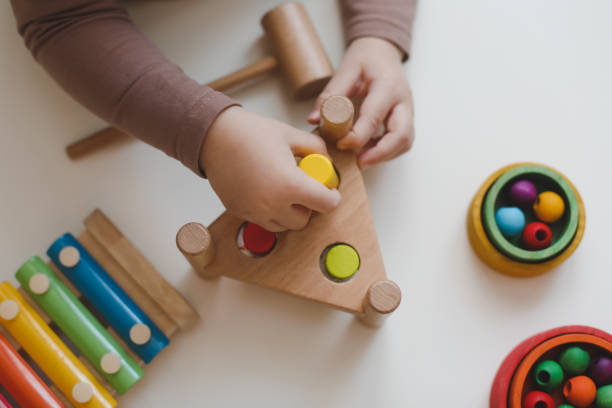Parent Involvement

Blending the Best
Reggio emilia approach
The Reggio Emilia approach is a child-centered educational philosophy that views children as capable, curious, and active participants in their learning. Originating in Reggio Emilia, Italy, after World War II, it emphasizes collaboration, creativity, and exploration within a thoughtfully designed environment, often referred to as the "third teacher." The curriculum is emergent, evolving based on children's interests and inquiries, while teachers act as co-learners and guides. Learning is seen as a social process, with strong collaboration among children, teachers, and parents. Central to the approach is the concept of the "hundred languages of children," encouragingexpression through various mediums such as art, music, and storytelling.Documentation of children's work is used to make learning visible and to reflect on theirgrowth and understanding, fostering a love for learning and critical thinking.

Montessori
The Montessori approach, developed by Dr. Maria Montessori in the early 20th century, is an educational philosophy that emphasizes independence, self-discipline, and hands-on learning in a thoughtfully prepared environment. Rooted in the belief that children are naturally curious and capable, the method promotes exploration through activities tailored to their developmental stages, fostering intrinsic motivation and a love for learning. Montessori classrooms feature mixed-age groups, where children learn collaboratively and benefit from peer mentorship, and are equipped with carefully designed materials that encourage problem-solving, critical thinking, and mastery of practical life skills. Teachers, or guides, play a supportive role by observing each child's needs and progress, offering individualized lessons and freedom within clear boundaries. This approach values the whole child, addressing cognitive, emotional, social, and physical development, and aims to cultivate independence, confidence, and a sense of responsibility in children, preparing them for lifelong learning and success.

Waldorf
The Waldorf approach, developed by Rudolf Steiner in the early 20th century, is an educational philosophy that emphasizes holistic development, nurturing the intellectual, emotional, physical, and spiritual growth of children. Rooted in Steiner's belief in the interconnectedness of humanity and the natural world, the method integrates academics with arts, movement, and practical activities to create a well-rounded learning experience. Waldorf classrooms are designed to be warm and homelike, featuring natural materials and a rhythm that mirrors the seasons and daily routines. Play-based learning dominates in early childhood, gradually transitioning to structured academics in later years, with a strong focus on storytelling, music, drama, and handcrafts. Teachers build long-term relationships with their students, often guiding the same class for multiple years to foster continuity and trust. The curriculum is intentionally interdisciplinary, aiming to ignite imagination, creativity, and a deep connection to the world, cultivating thoughtful, confident, and compassionate individuals.






.jpeg)



